
West Cumbria Mining Ltd. want to extract 2.78 million tonnes of coking coal a year from under the sea near Whitehaven in a ‘deep’ coal mine. Cumbria County Council gave permission for them to do so until 2049 in October 2020. The coal is predominantly for export and would be consumed by the steel industry.
Coking coal is a type of coal used in steel works to create steel using blast furnaces. In the UK, the second and third biggest single site emitters of CO2e (gasses which cause climate change) are Port Talbot and Scunthorpe steel works respectively, which both use coking coal.i Coking coal (also known as metallurgical coal) is a reducing agent in the creation of steel from iron. It has a higher monetary value than thermal coal which is used in power stations to generate electricity.
Producing steel from coal is a high carbon process. If this mine were to go ahead and the coal was extracted and consumed it would produce 9 million tonnes of CO2e a year,ii at a time when we need to drastically reduce the emissions, especially in the most affluent countries.
West Cumbria Mining Ltd. say that 83% of the coal extracted would be sold abroad,iii via the port at Redcar potentially to Europe. Only up to 17% is expected to be used in the UKiv because this coking coal has a high sulphur content.v If the British steel industry use too much, it risks exceeding the sulphur dioxide limits plants must adhere to. Sulphur dioxide causes acid rain.
But we need coking coal to make steel don't we?
No. Using coking coal is just one way to produce steel. Two of the four large steel manufacturers in the UK (Liberty Steel and Celsa) use electric arc furnaces to recycle scrap steel into new steel. This doesn't use coking coal. Direct Reduction Iron, another way to make steel, doesn't rely on coal to reduce the iron, although sometimes it does use it.vi
Most of the big steel makers are investing and innovating so that they can decarbonise the steel sector. There aren't big UK projects doing this at the moment. The HYBRIT project in Sweden is expecting to be making commercial-scale steel by 2026.vii Various methods are being worked on, including those looking to use hydrogen and those which propose using unsustainable fuels like fossil gas to reduce iron until green hydrogen (where the energy comes from renewable electricity) is available. The Climate Change Committee has said, “Government should set targets for ore-based steelmaking ... in the UK to reach near-zero emissions by 2035”. When this happens the UK won't be using any coking coal by 2035, 14 years before this mine is due to stop production.viii

Onland infrastructure of the proposed mine, the majority of the extraction site is below the sea
Cumbria County Council have approved the application for a deep coal mine twice, although the councillors showed that they didn't fully understand the climate change implications. Amendments were made to the first application due to a successful Judicial Review. The Secretary of State for Housing, Communities and Local Government, Robert Jenrick, said that if the Council was intending to approve the application he would consider calling it in and making the decision himself. He has since decided not to intervene.
Steel making using coal is an emissions intensive industry. This is worsening the impacts of climate change and increasing the negative impacts across communities globally as well as biodiversity collapse. The UK is hosting the COP26 climate change summit in November of this year. The government is pushing the Powering Past Coal Alliance and wants to be seen as active on action on climate change issues. Approving a new coal mine goes against this. Failure to intervene in this matter sends a signal to other governments that it’s acceptable to call yourself a ‘leader’ on climate change whilst continuing climate-wrecking practices. Following Robert Jenrick's decision, the Climate Change Committee wrote to him asking him to outlining the climate and international political issues of his decision.ix
What can we do to stop this application?
There are a number of groups who are working to ensure that this mine does not get the full go-ahead. Permission is still needed for the section of the mine under the sea from the Marine Management Organisation and from the Coal Authority.
iEmber, Coal Free Kingdom (13th November 2019) https://ember-climate.org/project/coal-free-kingdom/ and Drax Group, Enabling a zero carbon, lower cost energy future page 39 (2019) https://www.drax.com/wp-content/uploads/2020/03/Drax_AR2019_Web.pdf
iiCumbria County Council Executive Director - Economy and Infrastructure, Development control and regulation committee Application Reference No:4/17/90077.17 (2 October 2020) point 7.107 page 35
iiiCumbria County Council Executive Director - Economy and Infrastructure, Development control and regulation committee Application Reference No:4/17/90077.17(2 October 2020) point 7.130 page 38
iv0.36 million tonnes out of 2.78 million tonnes produced annually Cumbria County Council Executive Director - Economy and Infrastructure, Development control and regulation committee Application Reference No:4/17/90077.17 (2 October 2020) point 7.17 page 20
vCumbria County Council Executive Director - Economy and Infrastructure, Development control and regulation committee Application Reference No:4/17/90077.17 (2 October 2020) multiple points page 32
viInternational Iron Metallics Association, DRI production, viewed 1 February 2021, https://www.metallics.org/dri-production.html
viiBloomberg Green, Sweden Moves Closer to Making Fossil-Fuel-Free Steel (31 August 2020)
viiiClimate Change Committee, Policies for the Sixth Carbon Budget and Net Zero (December 2020) https://www.theccc.org.uk/publication/sixth-carbon-budget/page 96, table 4.1
ixCImate Change Committee, Letter: Deep Coal Mining in the UK (29th January 2020) https://www.theccc.org.uk/publication/letter-deep-coal-mining-in-the-uk/
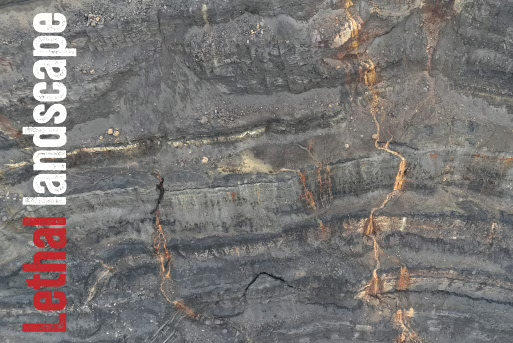
16 years of opencast coal mining in Ffos-y-fran has generated colossal overburden mounds, also known as slag heaps or coal tips. There are three coal tips, with the third being the largest, and cumulatively accounting for 37 million cubic metres of colliery spoil, rocks, and soil…
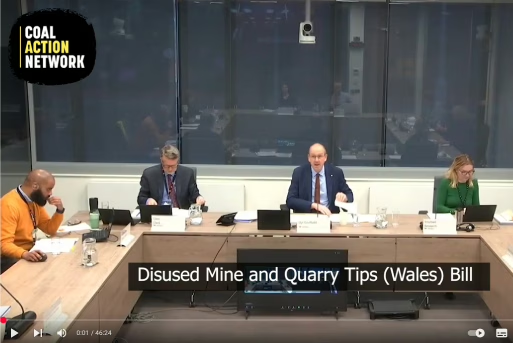
We were invited for the second time to give oral evidence to the Climate Change, Environment, and Infrastructure Committee of the Welsh Parliament (Senedd) on 05th February 2025. We shared the panel with Haf, Director of FOE Cymru, to provide our opinion on the weaknesses, strengths…
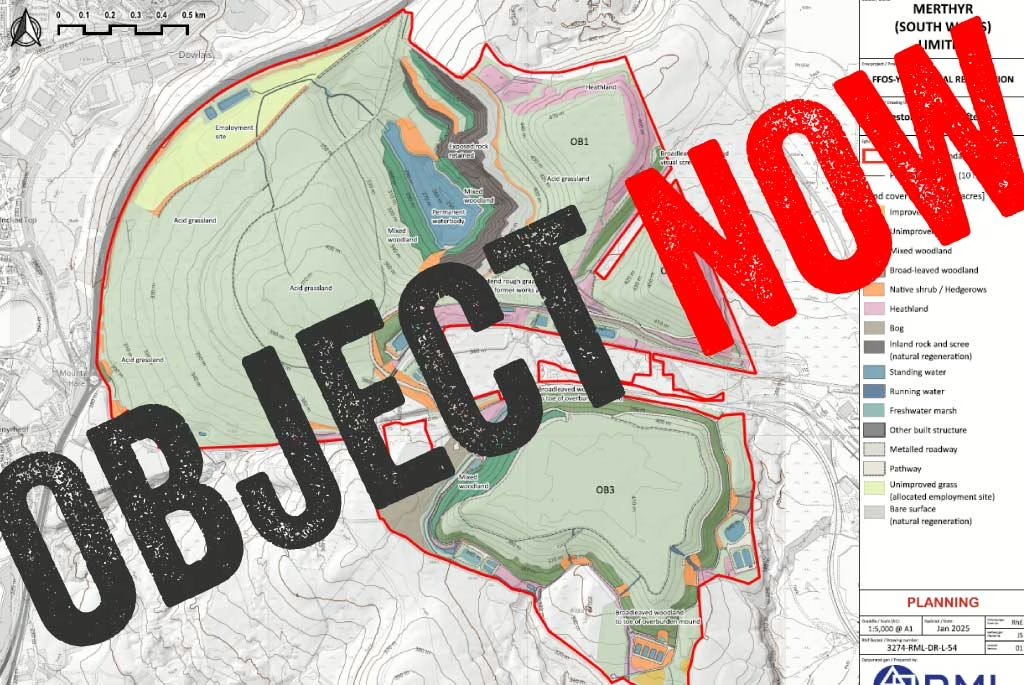
Merthyr (South Wales) Ltd mined for over a year illegally after planning permission for the Ffos-y-fran opencast coal mine ended in September 2022. During that year, it made record-breaking profits due to sanctions on Russia and other factors driving up the price of coal. But rather than using some of the profits from that ill-gotten coal…
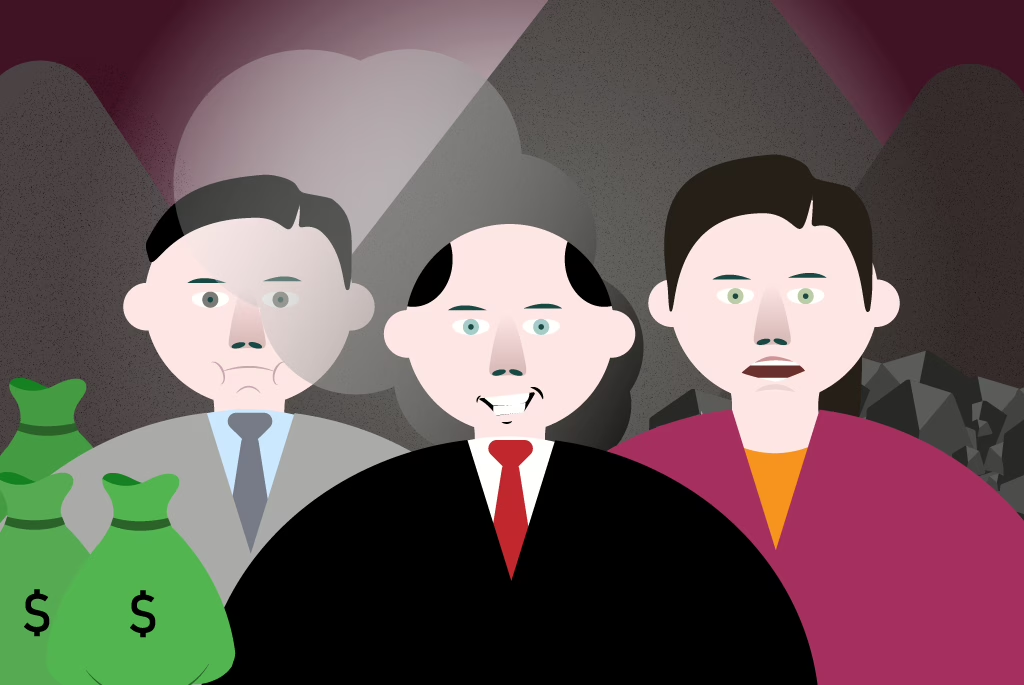
MSW claims “It was established that there are insufficient funds available to achieve the 2015 restoration strategy and therefore an alternative scheme is required.” (EIA Scoping Report, July 2024)… To our knowledge, there has been no evidence submitted by MSW that it cannot fund the full restoration it is contracted to undertake…
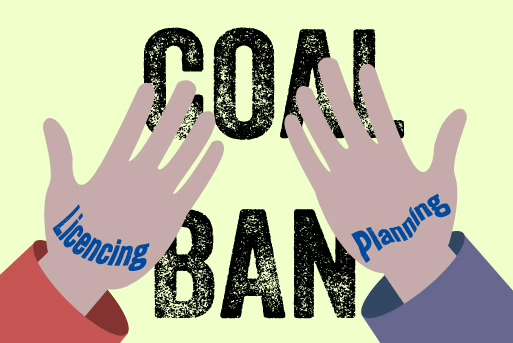
The UK Government launched a consultation on a limited review of the National Planning Policy Framework (NPPF) for 8 weeks from 30 July to 24 September 2024. The NPPF is an influential document that shapes planning decisions and priorities across England. It is periodically updated by the Government, following a public consultation…
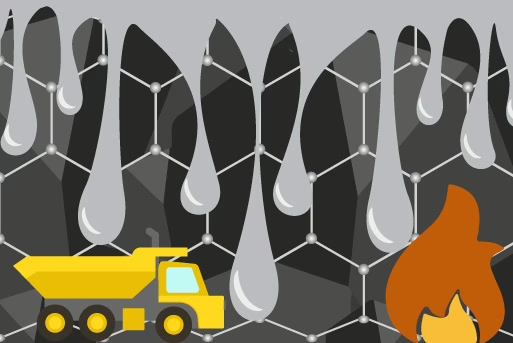
Bryn Bach Coal Ltd attempts to present the anthracite coal it wishes to extract from an expansion of Glan Lash as a unique and scarce commodity that is needed for water filtration, bricks, and graphite, and would therefore be too valuable to burn. Yet, visiting Energybuild Ltd’s…
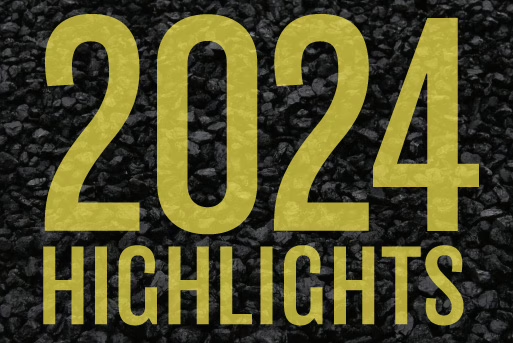
Over the past year, we’ve secured some massive victories. By taking part in our digital actions, supporters sent over 26,000 messages to the UK Government, MPs, Welsh Senedd members, Councillors, and companies to help consign coal to the history books in the UK…
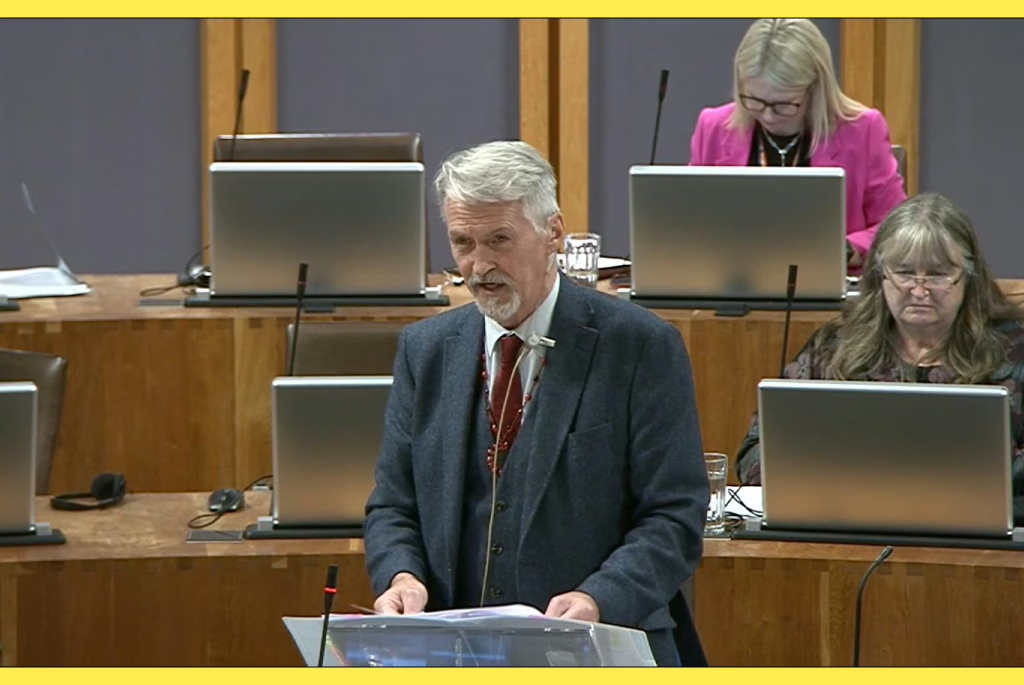
The Disused Mine and Quarry Tips (Wales) Bill (‘the Bill’) was prompted by a series of coal tip landslides that occurred in Wales following storms’ Ciara and Dennis in 2020, including a major landslide of a disused coal tip in Tylorstown…
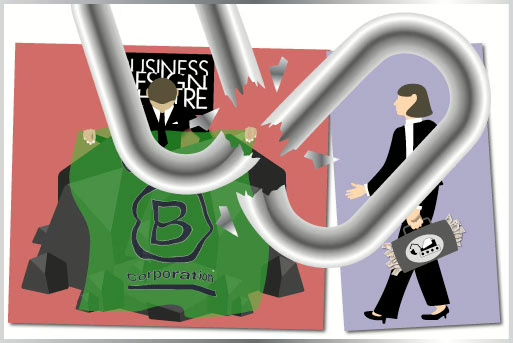
As B Labs doesn’t seem bothered was the public says, we asked supporters to contact other B Corps – who are effectively B Labs customers. Almost 20,000 emails were sent to over 60 B Corp status companies, asking them to take a stand with us…